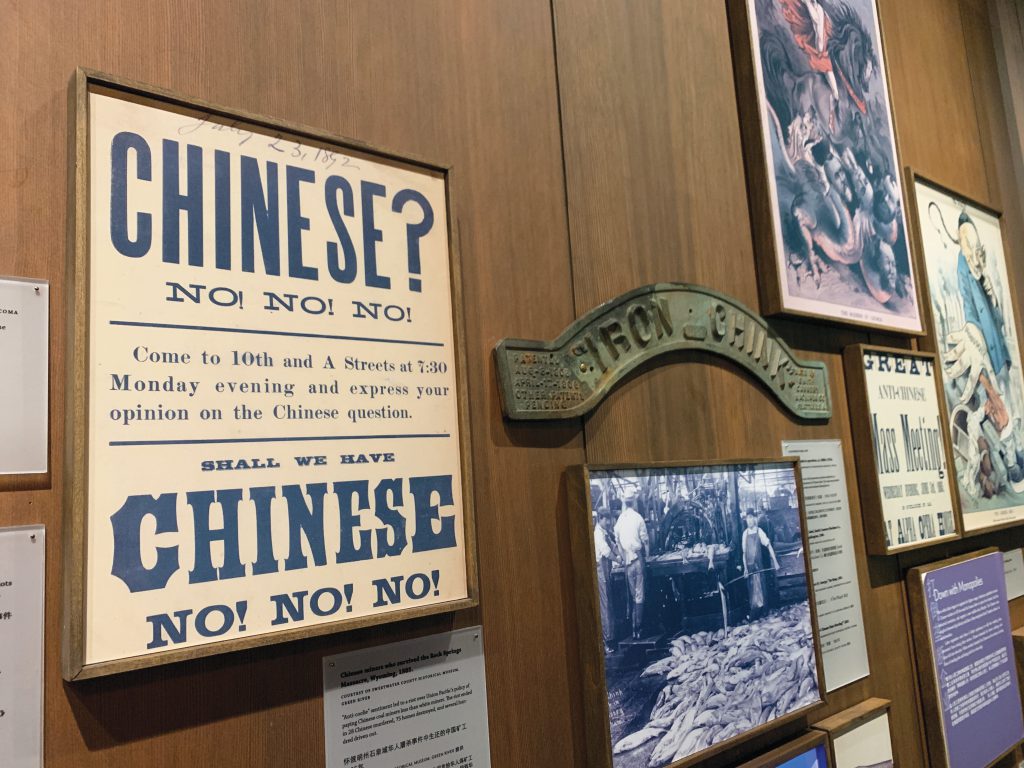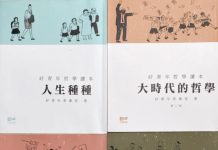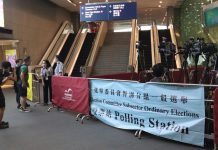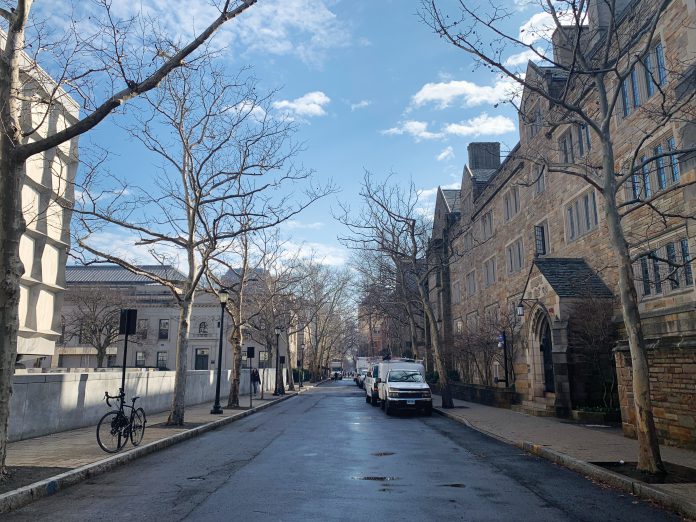Chinese Americans in the United States are yet to be accepted into the American melting pot
By Hayley Wong in Connecticut
“Where are you from?”
“I am from Georgia.”
“No, but you must be from somewhere else.”
Born and raised in the United States, Chinese Americans are no different from other American citizens. But their identity is often questioned, as their surnames carry a special accent.
About 4.95 million Chinese resided in the United States, accounting for 24 per cent of the Asian American population, according to the “2015 American Community Survey One-Year Estimates” by the U.S. Census Bureau.
Chinese immigrated to the United States for different reasons, and the history could be dated back to the mid-19th century.
Migration history of Chinese Americans
The first wave of immigration began in the 1850s. According to the Migration Policy Institute, a think tank that researches on immigration and integration policies in North America and Europe, Chinese immigrants at that time were primarily male manual labourers. They went to the West Coast to search for low-skilled jobs, ranging from agriculture and mining to railroad construction.
The second wave began after the implementation of the Immigration and Nationality Act in 1965, which removed racial barriers favouring professionals. Chinese immigrants during that period were mostly skilled labour who worked in commercial sectors.
Chinese immigrants have been applying for permanent residency by showing intentions to help promote economic growth in the USA in recent years. Entrepreneurs can file an application under the EB-5 Immigrant Investor Visa Program, under which they are required to make contributions to job creation and domestic investment. Chinese constituted 90 per cent of all applicants of such visa in 2015.
Being stereotyped
In spite of the significant number of immigrants, Chinese population only comprised of 1.2 per cent of the total population of the United States, a report by the U.S. Department of Commerce in 2010 revealed. Despite the long history of Chinese immigrants in the USA, racial discrimination and stereotype issues still exist.
When asked about the change in attitude towards Chinese Americans over the years, Nancy Yao Maasbach, president of the Museum of Chinese in America (MOCA), says: “A lot of things have changed, but unfortunately a lot of things have not changed, and have not changed quickly enough.”
She explains why it is difficult to get rid of prejudices. “[In] every period of time, there seems to be prevailing stereotypes,” she says. While some assume Chinese to be smart and good at mathematics, some believe they all know Kung Fu, traditional Chinese martial arts.

“Even though the model minority part (Chinese’ talents in mathematics) seems like they are positive and a compliment, obviously they are still a stereotype because many Chinese are not good at maths,” she continues.
The contributions of Yung Wing
Chinese Americans now enjoy a higher social status comparing to the past. “I am grateful to our Chinese ancestries because they really fought for civil rights. They really broke down some of those ceilings so I can go to a liberal college…There were times that these were impossible and there was so much discrimination,” says Maasbach.
She attributes the success to the efforts of Yung Wing, the first Chinese student studying at Yale University. “He did such an amazing job in contributing to the understanding between the U.S. and China, and also this educational priority that he placed on giving these young boys such exposure to the Chinese education mission,” she says.

Yale University
Yung Wing (1828-1912) impressed his schoolmaster at a missionary school in Guangzhou, and was brought to America for further education. In 1850, he was admitted to Yale University, where he realised the importance of popularising American education among Chinese students.
Upon the completion of studies, he founded the Chinese Educational Mission. Over a decade, he sent 120 Chinese students to schools in the United States, according to the Council on East Asian Studies at Yale University.
Discrimination in small towns and metropolitan cities
Despite the breakthrough in striving for education equality, discrimination still exists. “A lot of the treatment has to do with the initial way we look,” says Lin Ming-yee, a Chinese-American attorney, who works at the New Haven Legal Assistance Association.
Born and raised in a suburb in Atlanta, the capital of the U.S. state of Georgia, the 31-year-old could still recall stories of prejudicial treatment in her life.
Lin believes the level of knowledge about Chinese culture affects people’s behaviour towards Chinese Americans. As one of the three students with Chinese origins in her school in Georgia, Lin recalls her classmates were curious about the trio in school, and totally lacked understanding about them. They asked questions like “how do you see when your eyes are so small”.
“I don’t think it was motivated by malice. It was really like I was so unusual that they had all these questions that they had never been able to ask before,” she adds, “but it did create a situation that made me feel very isolated.”
To Lin’s surprise, her experiences in the metropolitans were not better than those in the remote areas. They reveal more ignorance and stereotype Chinese in more offending ways.
There were also several times when Americans, mostly white men came to Lin and practised Chinese with her. “They would continuously keep trying to speak Chinese to me. It was a very frustrating experience because it made me feel like I am not from here,” she says.
Chinese Americans face tough times dealing with challenges. Lin says her parents could not believe she was going through discrimination and sexism. Even though her family has always had her back, they never talked about politics and racism until the presidential election in 2016. In 2016, Donald Trump, representing the Republicans, defeated Democratic nominee Hillary Clinton and became the president.
“Because they weren’t minority as the same way as me, they don’t understand the pain I was experiencing, growing up to be isolated and totally different,” she says.
The relationship between stereotypes and personal factors

Chinese American students studying at Yale University share their stories of growing up with prejudgements and stereotypes with Varsity reporters. Joy Qiu, a 20-year-old Chinese-American student, says: “I think it largely depends on what space you are in and what the environment is.” Studying at Yale, being one of the 19.3 per cent of Asians, she feels more at ease.
Qiu believes there are moments when others judge her based on her appearance and expect her to behave in certain ways. For instance, people would say her voice was so loud, as a Chinese girl. Even so, she says: “I’m definitely proud to be a Chinese American.”

Another Chinese American at Yale University, Ivory Fu, 20, lived in Kansas and New York City before. She thinks the way Chinese Americans being treated does not only vary in different environments, but also personal traits. “I found that the way you present yourself can also attract biases,” she says.
When she was in high school, her friends who were more reserved and shy, often faced more discrimination than she did. As she was a more sociable and outgoing person, no one has questioned if she really is an American.
Identity struggles of Chinese Americans
Other than interpersonal relationships, Chinese Americans have to struggle with identity issues. Rocky Lam, 20, also a student at Yale University, recalls how he tried to present himself as an American in his teenage years.

To fit into the social circle, he never spoke Chinese outside his house, and would only talk about English TV shows and music. “That’s actually a divide that I kept throughout my entire life,” he says.
Fortunately, this is no longer something he cares about so much now. “I think my college has done a lot to me in terms of exposing me to so many of my community members and allowing me to be proud of my heritage,” he says.
Edited by Sarah Poon










































